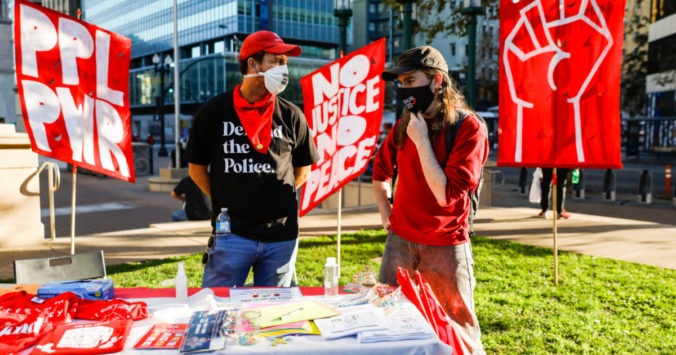In my last couple of posts, I charted out some of the deep tensions within DSA. I charted some of its issues with post-pandemic social anxiety and psychological safety a couple of weeks ago. And then last week, I analyzed its position with respect to progressive activism.
In that post, I presented DSA as an org for activists and enthusiasts rather than for a working-class base. And in that regard, DSA looks more like one node in a broader progressive activist network rather than a grassroots working-class movement.
But some people within DSA argue that the org is descending into a sectarian one. I took up this question a couple of years ago, where I denied this view.
But since the election of a new NPC that contains multiple democratic centralist factions, have things changed?
Why Would Anyone Think DSA is Sectarian?
On the face of it, the charge of sectarianism sounds silly. DSA still basically operates as a ‘big tent’ org. It holds low barriers to entry, and it holds high barriers to expulsion. Indeed, expulsion remains very rare.
The charge of sectarianism comes mostly from the more moderate, social democratic factions of DSA, like the North Star caucus, as well as the ‘big progressive alliance’ factions like Groundwork and Socialist Majority. When they make the charge, they cite things like the AZR expulsion debate (the topic of last week) and International Committee support for Maduro and the PSUV in Venezuela.
In short, they cite shifts within DSA on specific viewpoints. At the end of the day, when they say ‘sectarian,’ they really seem to mean ‘taking non-mainstream positions on issues, even compared to left-leaning, progressive, and/or working-class political circles’. They think that support for Maduro and a strong anti-Zionist stance will turn off current and potential members, driving DSA to become a smaller org.
A sectarian org, on this view, takes rare viewpoints.
Method or Approach, Not Viewpoint
But this strikes me as a wrongheaded approach. I would define sectarianism in terms of method or approach, not viewpoint. An org that holds an open, democratic discussion and then takes a non-mainstream stance doesn’t thereby become a sectarian org. I would call that an open and democratic org.
In short, we should not define sectarianism by an org’s stance on the issues. Rather, we should define it by the org’s structure, its approach, and how it evaluates and changes its views.
A sectarian org is one that is built around centralization at the center (whether the center is elected or not elected), lack of tolerance for disagreement, and a rigid ideology that doesn’t evolve with open debate. It’s built around uncritical reverence for key figures or texts. It’s built around a vocabulary and methods that aren’t accessible to actual working-class people. And it holds members to views they disagree with.
Does that describe DSA at present? No. DSA moved a bit in that direction in the 2020s. But I chalk that up to org growth since 2017. People want to build out a bit more structure, and that makes sense. And, along the way, they discuss and debate DSA positions on issues.
That’s not sectarianism. At least not yet.
A Sectarian DSA?
So, what would a sectarian DSA look like?
It might look like what North Star, Groundwork, and Socialist Majority fear – an NPC majority run by democratic centralist factions that push a pro-Hamas, pro-Maduro, anti-Zionist purge of the org that removes its more ‘right’ factions.
But it could just as easily look like this – an NPC majority run by tacitly democratic centralist factions that push a ‘big progressive’ coalition purge of the org that removes its more ‘left’ factions.
You can turn either ideology into sectarianism.
